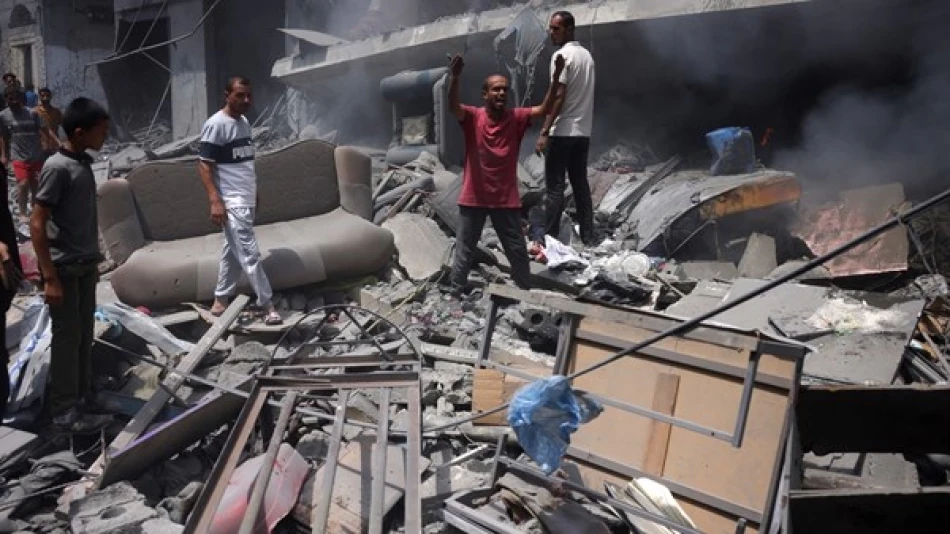
Arab League Condemns Israel's Decision to Tighten Control over Gaza
Arab League Condemns Israeli Military Control Plans for Gaza as Regional Security Threat
The Arab League Council has strongly denounced Israeli government decisions aimed at establishing military control over Gaza and displacing its population, declaring such moves a violation of international law and a direct threat to Arab and regional security. The condemnation comes as humanitarian conditions in Gaza continue to deteriorate, with the League calling for immediate international intervention under Chapter VII of the UN Charter.
Humanitarian Crisis Reaches Critical Point
The Arab League's permanent delegates meeting at the organization's headquarters highlighted the severe humanitarian toll of the ongoing conflict. The Council specifically condemned what it termed the weaponization of starvation, which has reportedly claimed 200 civilian lives, half of them children. Additionally, the League referenced "death traps" that have resulted in 1,500 casualties.
These figures underscore the escalating humanitarian emergency in Gaza, where access to basic necessities remains severely restricted. The Arab League's emphasis on starvation as a weapon of genocide reflects growing international concern about the use of siege tactics in modern warfare.
International Law and Security Council Action
The League has called upon the Arab Group in New York to present a draft resolution to the UN Security Council under Chapter VII, which would authorize enforcement measures to halt what it describes as aggression against Gaza. This approach signals the Arab League's intention to pursue the strongest possible international legal mechanisms available.
Existing UN Resolutions Under Pressure
The Council specifically urged the international community to implement Security Council resolutions 2735, 2712, and 2720, which address ceasefire arrangements, displaced persons' return, humanitarian aid distribution, prisoner exchanges, and Israeli forces withdrawal. The repeated calls for implementation suggest these resolutions have faced significant compliance challenges.
Palestinian Authority Control Demanded
A key element of the Arab League's position involves demanding that the Palestinian state be enabled to govern Gaza, the West Bank, and Jerusalem. This stance reflects the broader Arab consensus on Palestinian sovereignty and represents a direct challenge to any Israeli plans for long-term military administration of Gaza.
The emphasis on unified Palestinian control across all territories aligns with longstanding Arab League positions but takes on new urgency given current military realities on the ground.
Regional Security Implications
By framing Israeli actions as threats to regional security, the Arab League is positioning the Gaza situation within a broader Middle Eastern stability framework. This approach could potentially mobilize wider international support and justify more robust diplomatic and economic responses.
The League's renewed call for breaking the siege through coordinated land, sea, and air humanitarian corridors in partnership with the United Nations represents an attempt to establish international oversight of aid delivery mechanisms.
Diplomatic Strategy and International Pressure
The Arab League's comprehensive approach—combining humanitarian concerns, legal challenges, and regional security arguments—suggests a coordinated diplomatic strategy aimed at maximizing international pressure. The specific call for sanctions against Israel under Chapter VII authority would represent a significant escalation in international legal proceedings if successful.
However, the effectiveness of such measures will largely depend on Security Council dynamics and the positions of permanent members with veto power, particularly the United States, which has historically provided strong support for Israeli security concerns.
Most Viewed News

 Layla Al Mansoori
Layla Al Mansoori






